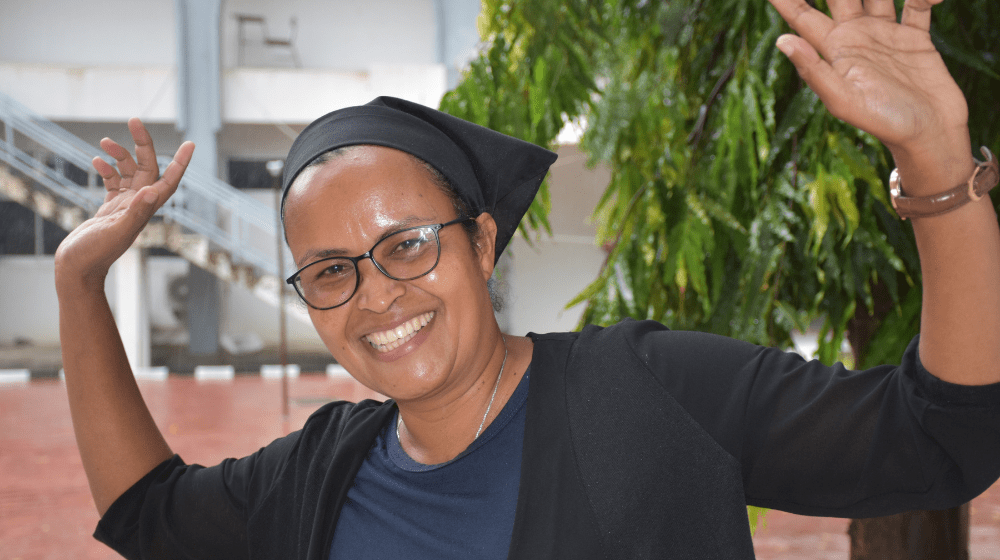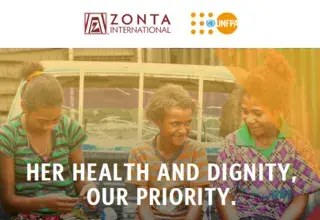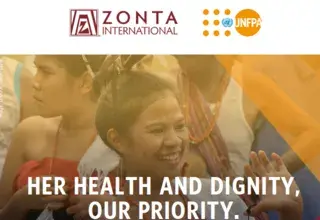“When we trust ourselves, people will trust us,” shared Alcina.
As the Head of a local Community Health Centre, she understands the unique position of health care workers in connecting women experiencing violence with support services. It is typically only in the most severe cases of physical violence that women come to the health centres.
“When women don’t have a physical injury, they won’t come to the health centre,” said Alcina. “When their husband hits them to a degree to cause injury, that’s when they come here.”
“As a health provider, it is important to recognise this and support women and girls when they get injured,” she said. “They don’t want to tell us that they have experienced violence. But when it happens again, and we see that she has just come to us two or three days ago, then they may tell us.”
“But when women talk to us and it seems we don’t care, then these women won’t tell us their story.”
Connecting Health and Justice Services
Alcina is not only leading the health centre, she is also the gender-based violence focal point for the facility. In this position, she supports coordination with other gender-based violence response services in the municipality and with national counselling and support services.
In Timor Leste, economic factors contribute to an environment where women are reluctant to speak out about intimate partner violence. Alcina shared that many women are dependent upon their husbands. When thinking about leaving a violent relationship, women worry what will happen to their children.
This is where effective coordination between health, justice, and social services is important.
“When a woman comes to us and we provide quality care, then they trust us and trust the coordination between us and other organisations,” said Alcina. “For example, when women come to us with economic issues, then we contact the Ministry of Social Security to help.”
Alcina and her colleagues also work closely with police. In addition to treating injuries of survivors who have been referred to them by police, health care practitioners need to ensure that their documentation is sufficient in the event that a woman would like to proceed with taking a case to court.
“When a woman comes to us having experienced domestic violence, they are often accompanied by police for treatment of recent physical injuries,” shared Alcina. “When a survivor comes with police, this means the case will go to court. So we as health providers need to have good documentation, record exactly what injuries were sustained, then give this to the police.”
Issue is ‘like an iceberg’
Alcina works in a municipality a few hour’s hour drive from Timor Leste’s capital, Dili. Patients who need to be referred to the capital, to receive support from organisations like PRADET, which provides psychosocial support for survivors of violence, may need to wait for two two days or up to a week for transport.
Alcina shared that expanding psychosocial and safe house services to urban centres outside Dili is essential.
“In this municipality, we have the second-highest population in Timor Leste,” said Alcina. “This issue is like an iceberg. For people who come to us, we provide care. But what about the majority of people who experience violence?”
“We need a uma mahoon (‘safe house’) here in the area,” she said. “I think that would be great so we don’t need to refer the survivors to a place far away from us.”
Alcina was one of several health care providers, including doctors and midwives, who attended an intensive survivor-centred care course facilitated by a local CSO, HAMNASA, in partnership with UNFPA and supported by Zonta International.
“I can’t keep this knowledge to myself,” shared Alcina. “I need to share it with my colleagues and work together with HAMNASA. In particular, they have to find a private place to have consultations with survivors of violence. We can’t provide proper care in the emergency room. We need to bring them to the maternity room where we have privacy.”
“We’re not going to change practices overnight, but little by little.”
Alcina’s compassion for survivors and drive to improve women’s experience of health services is clear when speaking with her. Not shying away from the complex challenges facing her and her colleagues in implementing long-term changes, she is dedicated to making a difference for the individual patients who come to her for support.
Patient by patient, little by little, Alcina is building the trust in health care professionals in Timor Leste.





